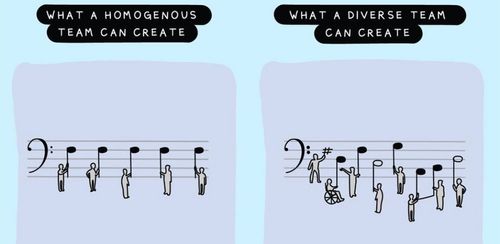

Essential: How Distributed Teams, Generative AI, and Global Shifts Are Creating a New Human-Powered Leadership

01 April, 2025
Share this article
In Essential, Christie Smith and Kelly Monahan present a compelling analysis of the seismic shifts reshaping the workplace. Through a combination of economic trends, technological advancements, and evolving workforce expectations, they argue that leadership must undergo a transformation—one that places human skills at the core of business success.
Key challenges
The book highlights several key challenges: the ageing workforce, the changing nature of skills, and the increasing autonomy demanded by employees. Smith and Monahan explore how remote and distributed work, combined with the rapid integration of AI, is forcing companies to rethink traditional management structures. They argue that businesses must move away from rigid hierarchies and embrace a more flexible, human-centered approach that prioritizes collaboration, continuous learning, and psychological safety.
Smith and Monahan skillfully integrate historical perspectives with contemporary research, demonstrating how leadership theories have evolved. They illustrate the pressing need for reskilling and the growing importance of soft skills—communication, adaptability, and creativity—as AI and automation take over more technical tasks. A significant focus is on the demographic shifts affecting the workforce, particularly the declining participation of women and the skills gap among Gen Z workers.
The book provides practical advice for leaders navigating these transformations, offering strategies to foster innovation, engage employees, and leverage AI without losing sight of human values. Smith and Monahan make a strong case for leadership that goes beyond effective management to one that is deeply attuned to workers' needs, motivations, and development.
A core theme is the indispensable role of context in human intelligence. While AI processes vast amounts of data, it lacks the nuanced understanding of cultural norms, emotions, and interpersonal dynamics that enable humans to navigate complex situations. This limitation reinforces the need for human judgment in decision-making, emphasizing the enduring value of human intelligence, connection, and purpose.
Leadership today must transcend strategic vision or financial acumen; it should focus on creating environments where employees feel valued and empowered. Purpose-driven work, aligned with personal values, enhances engagement and retention. Leaders who build cultures of trust, transparency, and well-being are more likely to succeed in attracting and retaining talent.
The indispensable role of context in human intelligence
One of the book’s central themes is the indispensable role of context in human intelligence. While AI can process vast amounts of data, it lacks the nuanced understanding of cultural norms, emotions, and interpersonal dynamics that allow humans to navigate complex situations with sensitivity and adaptability. The discussion highlights the limitations of AI and reinforces the importance of human judgment in decision-making.
Leadership, the book argues, is no longer just about strategic vision or financial acumen—it is about fostering an environment where employees feel valued and empowered. The author underscores the significance of purpose-driven work, citing research that links employee engagement to organizational success. Leaders who cultivate a culture of trust, transparency, and well-being are more likely to retain talent, especially in an era where younger generations prioritize alignment with personal values over mere job stability.
Generation Z’s expectations reflect a shift towards honesty, integrity, and purpose in the workplace. Organizations must adapt by fostering mentorship and leadership that emphasizes human connection. Autonomy is also crucial, as workers increasingly demand control over their tasks and decision-making processes. This call for flexibility reflects a fundamental change in workplace expectations.
The book also addresses artificial intimacy—a phenomenon where technology’s role in connecting people can paradoxically lead to isolation. Leaders must therefore be intentional in fostering genuine connections among employees, ensuring that technology enhances rather than replaces human interaction.
Effective leadership involves building relationships, understanding team members’ motivations, and positioning them where they can thrive. Leaders should use technology as a tool to enhance communication and collaboration while maintaining a human-centered approach. Retaining talent requires flexibility, personalized benefits, skill development, and alignment with employees' values.
In today’s context, rebranding soft skills as “power skills” highlights their role as the foundation of effective leadership. Skills like empathy, communication, and strategic thinking inspire teams and drive meaningful progress. As leadership evolves, these human-centric capabilities become essential for guiding organizations through complex, tech-driven environments.
Ultimately, Essential is a call for leaders to embrace holistic leadership by integrating emotional intelligence, human connection, and purpose. By fostering agency, trust, and well-being, leaders can cultivate workplaces where employees are both productive and genuinely engaged, ready to meet the challenges of a dynamic future.
Book review
Keep up to date with our most recent articles, events and all that Pluria has to offer you.
By subscribing to the newsletter you agree with the privacy policy.

Sometimes it seems like the very invitation to slow down as a pressure itself. At least for me. I think that sometimes there are moments when we stretch ourselves, we push the boundaries, we[...]
28 October, 2024

“I don’t want a linear career,” “I don’t even want a portfolio career. I want a portfolio life.”
Might be thoughts in our minds, maybe, but for sure, comprised in a fantastic book of Christina Wallace [...]
11 November, 2024

Gentelligence: An approach on leading an intergenerational workforce that explores how bridging generational divides enhances workplace collaboration and innovation.
The authors [...]
08 January, 2025